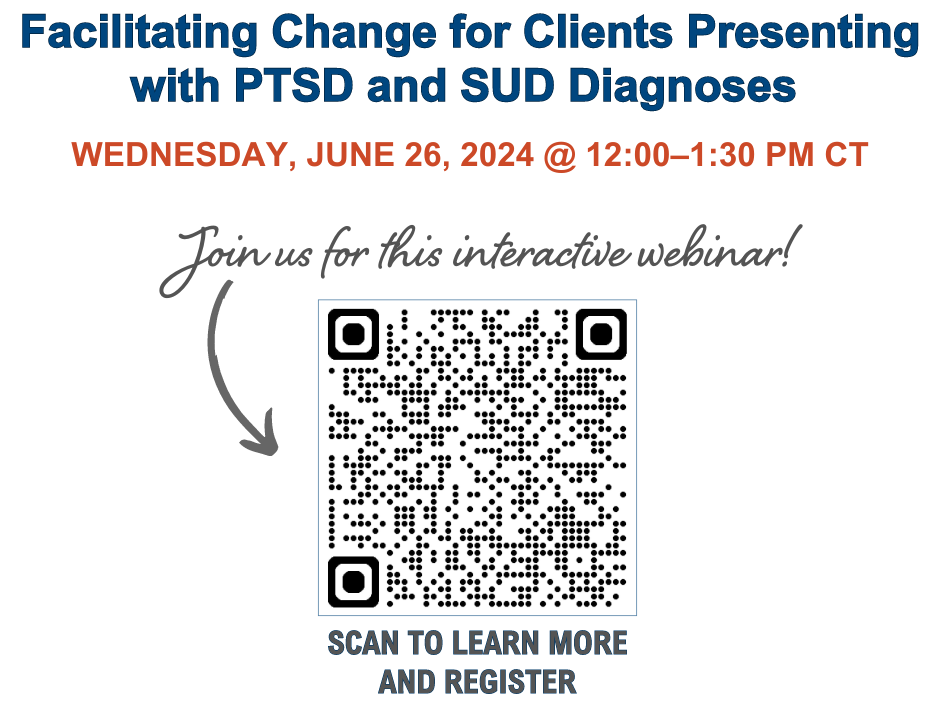Home > News > Strategies To Help Prevent Acute Stress Disorder from Mushrooming into PTSD and a Concurrent Substance Use Disorder, Part 2: Cultural Considerations
ICYMI: Read Part 1 of this 2-part blog series!
Acute Stress Disorder (ASD) is a psychological response to a traumatic event that typically arises within a month of the experience. If untreated, ASD can evolve into Post-Traumatic Stress Disorder (PTSD). Additionally, individuals with PTSD are at an increased risk of developing substance use disorders (SUD), as they might use substances to cope with their distress. Effective prevention strategies are essential to stop ASD from escalating into PTSD and SUD. This blog explores these strategies, with a special focus on the cultural aspects that clinicians need to consider.
ASD is a condition that can occur in the immediate aftermath of a traumatic event. The symptoms typically appear within three days to one month following the event and can significantly impair an individual's ability to function. The symptoms of ASD are similar to those of Post-Traumatic Stress Disorder (PTSD) but are of shorter duration. According to the Diagnostic and Statistical Manual of Mental Disorders, the symptoms of ASD are categorized into five groups:
Cultural factors significantly influence how individuals experience and cope with trauma. Clinicians must understand and integrate cultural aspects into their prevention and treatment strategies. This involves understanding cultural attitudes towards mental health, trauma, and substance use and tailoring interventions accordingly. Therapists who are culturally responsive and sensitive to clients’ backgrounds could increase engagement, treatment satisfaction, and health outcomes.
The following reflective questions can guide the clinicians’ exploration to gain a deeper understanding of the client's multicultural factors.
Educating individuals about the symptoms and risks of ASD and PTSD empowers them to recognize early signs and seek help promptly. Awareness campaigns and educational programs can play a significant role in reducing stigma and promoting mental health literacy. Preventing ASD from developing into PTSD and a concurrent SUD involves a multifaceted approach that includes early intervention, effective psychological therapies, robust social support, and cultural sensitivity. By addressing these aspects, mental health professionals can significantly mitigate the long-term impact of trauma and improve the overall well-being of individuals at risk.

American Psychiatric Association (2022). Diagnostic and Statistical Manual of Mental Disorders, 5th edition, Text Revision (DSM-5-TR). American Psychiatric Association Publishing, Washington, DC.
Bryant, R. A. (2011). Acute stress disorder as a predictor of posttraumatic stress disorder: A systematic review. The Journal of Clinical Psychiatry, 72, 233-239. doi: 10.4088/JCP.09r05072blu
Ford, J., Grasso D., Elhai, J., & Courtois, C. (2015). Social, cultural, and other diversity issues in the traumatic stress field. Posttraumatic Stress Disorder. 503–546. doi: 10.1016/B978-0-12-801288-8.00011-X
National Institute of Mental Health. (May 2024). Post-Traumatic Stress Disorder. https://www.nimh.nih.gov/health/topics/post-traumatic-stress-disorder-ptsd
US Department of Veterans Affairs. (2021). Acute stress disorder. https://www.ptsd.va.gov/professional/treat/essentials/acute_stress_disorder.asp


Isa Vélez Echevarria, PsyD, is a Puerto Rican clinical psychologist. She is the Ohio State Project Manager for the Great Lakes Addiction, Mental Health, and Prevention Technology Transfer Centers managed by the Center for Health Enhancement Systems Studies at the University of Wisconsin-Madison. During her pre-doctoral internship at Children’s Institute in Los Angeles, CA, she obtained a certification as Interpersonal Psychotherapy Clinician. She was trained in Trauma-Focused Cognitive Behavioral Therapy and Family Therapy. In addition, she provides telehealth services to communities of color in Massachusetts and Puerto Rico. Her clinical work has focused on culturally tailored and trauma-informed services to Latinx communities.
Mark Sanders, LCSW, CADC, is the Illinois state project manager for the Great Lakes ATTC, MHTTC, and PTTC. He's an international speaker and behavioral health consultant whose presentations and publications have reached thousands throughout the United States, Europe, Canada, West Indies, Lithuania, and Guam. Hes the recipient of four lifetime achievement awards, including NAADAC’s prestigious Enlightenment Award, the National Association for Addiction Professionals’ 50th Anniversary Legends Award, the Illinois Certification Board's Professional of the Year Award and Jessica Hayes Lifetime Achievement Award, and the Barbara Bacon Award for outstanding contributions to the social work profession as an alumnus of Loyola University.